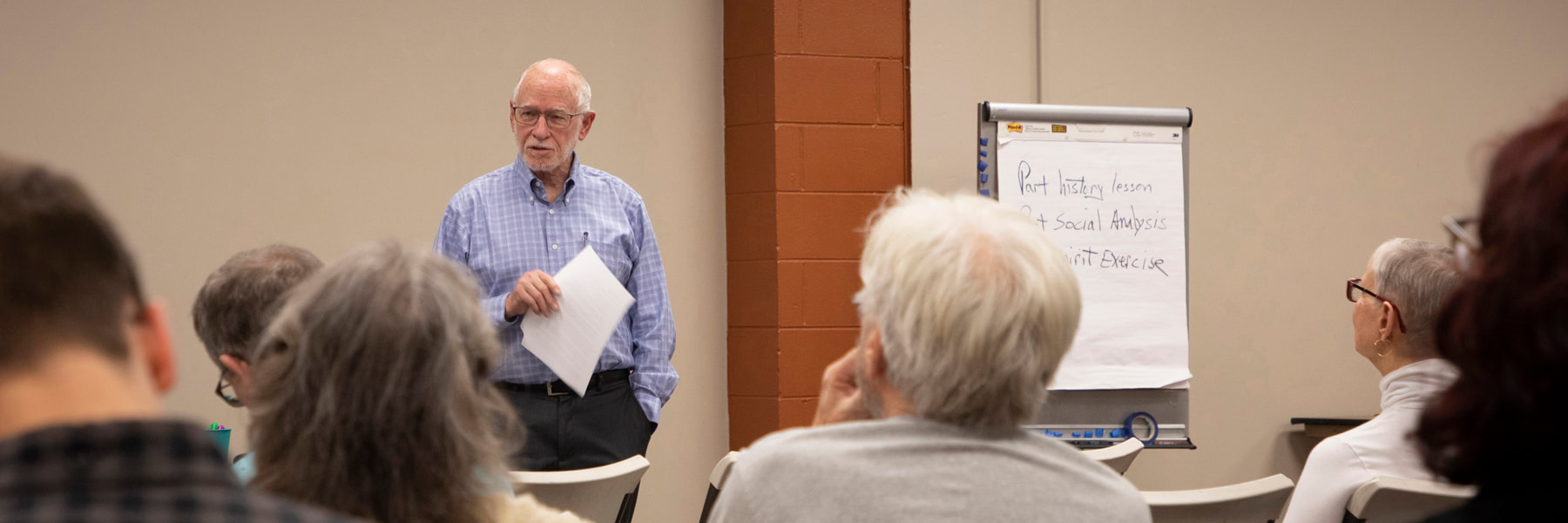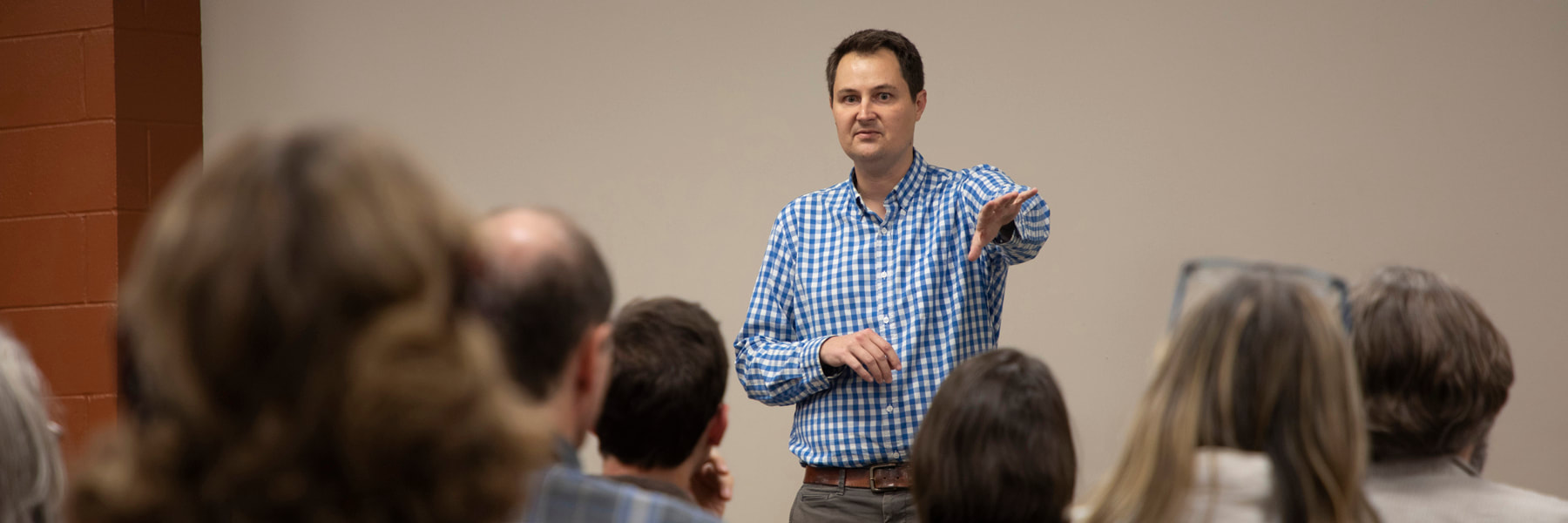|
“Race has to do with the ecology of human community, as does racism. It’s an ecological issue because it has to do not just with the ecology of human communities, but to our relationship with other biological communities,” said antiracism trainer James Addington during a talk on his new book, Tragic Investment, at ICA GreenRise on November 21, 2019.
That same evening, in the same room, we also hosted the second-ever screening of Monty and Rose, a film that “tells the story of a pair of endangered piping plovers that successfully nested at Chicago's Montrose Beach in the summer of 2019, the first of the species to nest in Chicago in 64 years.”
The pair of events, while not explicitly connected, demonstrate the idea posed by Addington that racial and environmental justice are “one struggle,” bound by the interplay of community, identity, and power.
Addington has been an antiracism organizer and trainer for the past 27 years and is currently training consultant with Crossroads Antiracism Organizing and Training, an organization dedicated to building racial justice in institutions. He has lived and worked in eight different countries and worked for ICA for 25 years.
Derrick Dawson, Co-Coordinator of Chicago Regional Organizing for Antiracism (CROAR), the Chicago program of Crossroads, asked Addington what it means to reconcile these ambushes with an antiracist identity. Addington emphasized accountability, saying that “accountability relationships that we self-consciously enter into sustain us in moments of crisis.”
After Addington’s remarks, ICA Program Director Seva Gandhi and CROAR Co-Coordinator Joy Bailey explained that ICA and Crossroads have partnered since 2011. Crossroads runs a national training program, similarly to our Technology of Participation (ToP) methods. ICA’s program model has integrated the transforming behaviors model from Crossroads, which identifies scarcity, secrecy, individualism, and either/or thinking as values that support white supremacy, and advocates for a radical shift to abundance, transparency, collaboration, and both/and thinking. That transformational shift is central to programs such as ToP and Chicago Sustainability Leaders Network (CSLN).
The story of the great lakes piping plovers embodies this kind of transformational change. Back in the 1950s, when the endangered birds were last known to have nested in Chicago, the land that would become the Montrose Point Bird Sanctuary was still an army missile base. It took decades of collaboration between the Chicago Park District and birding organizations to seed the area with bird-friendly shrubs such as blackhaw and nannyberry viburnum, serviceberry, chokeberry, and fragrant sumac. Today the 15-acre sanctuary attracts “tens of thousands of migratory birds of more than 300 different species,” according to the Park District, earning it the nickname “The Magic Hedge,” as well as a loyal following of avid birders.
Bob Dolgan, an Uptown resident, is one of those birders. He runs the consulting company Turnstone Strategies and serves on the board of the Chicago Ornithological Society (COS). Filmmaking came to Dolgan by accident on June 1, 2019 when he heard the “stunning news” that a pair of piping plovers was nesting on Montrose Beach. “We have an opportunity to capture the imagination of all Chicagoans because of Monty and Rose and to provide lasting protection for Montrose Point,” he later wrote for COS, “That’s why I enlisted a nature videographer to start filming Monty and Rose and the birds of Montrose Point.” Just a few months later, Illinois Governor JB Pritzker proclaimed November 18, 2019 as Piping Plover Day. Dolgan’s crowd-funded documentary, Monty and Rose, debuted at the Music Box Theater the same day, making the showing at ICA the second ever public screening. One of the documentary’s central themes is the overwhelming positive response the public had to the birds. Within days of the news breaking, hundreds of people had volunteered to keep watch over the nest. One of the volunteers featured in the film said that “hundreds and hundreds” of people passed by the nest each day, many of them stopping to learn about the plovers. Support for the birds was so great that organizers of the Mamby on the Beach music festival cancelled the late August event, citing in part the protected status of the endangered birds. Plover watch organizer Tamima Itani called the plovers “tremendous ambassadors for birds and birding” whose return to Montrose Beach made for “a magical summer.” Monty and Rose has been a huge success, rapidly filling the limited seating at its first five showings in November, 2019. Bob and his team got busy organizing additional screenings throughout 2020, including a special feature as part of the One Earth Film Festival, the premier environmental film festival in the Midwest with which ICA has also partnered. DVDs of the film are also available for pre-order on the website and include the bonus feature, "Postcard from Waukegan," about Monty and Rose's time in Waukegan in 2018. Comments are closed.
|
|
4750 N Sheridan Rd, Chicago, IL 60640
773 769 6363 x 335 |
Copyright 2022. The Institute of Cultural Affairs. All rights reserved.


